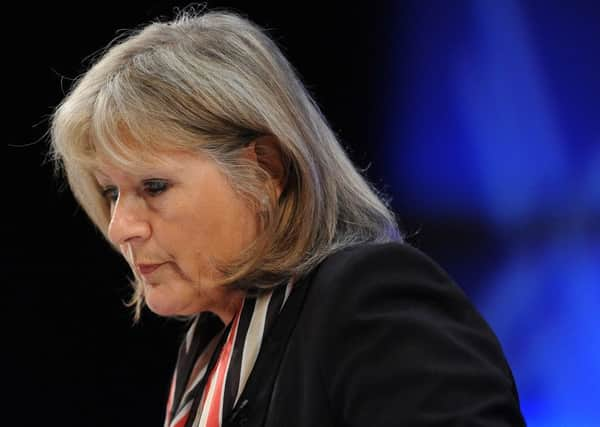John Sturrock: An important first step towards new attitudes


Margaret Mitchell MSP piloted this legislation through the Scottish Parliament with skill and tact. Many of the speeches at the stage 3 debate praised the approach, and MSPs observed that this is how legislation should be made.
As one member noted: “The actions of the member promoting the bill and the Scottish Government have to be praised in the highest order. They have met regularly, talked through issues and carefully explained the positions they have taken and why they have taken them. Both sides have been pretty consensual in trying to ensure that we end up with something that the Parliament can be genuinely proud of.”
That is truly encouraging to read about a parliament.
Advertisement
Hide AdAdvertisement
Hide AdThe Scottish Government supported the bill. Paul Wheelhouse, minister for community safety and legal affairs, said: “We have always agreed on the value of giving and receiving apologies and the importance of promoting a social and cultural change in attitudes to apologising, particularly in the context of public service provision.
“Apologies have the great value of acknowledging that something has gone wrong and demonstrating that lessons have been learned.
“We all know that mistakes happen – that is a sad fact of life – and that they can often have tragic and long-lasting consequences. However, it is how we deal with those mistakes that makes the difference.
“An apology can be a way of showing acknowledgement of and respect and empathy for another person. Although it cannot undo past actions, if it is made sincerely and effectively it could provide some form of redress and perhaps give closure to those affected.”
Ironically, perhaps, we also know from experience that such an approach is often more likely than a finding of fault or allocation of blame to bring about constructive change in a timely and cost-effective way.
The Act provides, with a few exceptions: “In any legal proceedings to which this Act applies, an apology made (outside the proceedings) in connection with any matter (a) is not admissible as evidence of anything relevant to the determination of liability in connection with that matter, and (b) cannot be used in any other way to the prejudice of the person by or on behalf of whom the apology was made.”
These are words with the potential to change our culture if we choose to work with them.
Initially, there were some objectors, mainly from the legal profession, but that seems to have had more to do with the perceived potential ineffectiveness of the proposal than serious principle.
Advertisement
Hide AdAdvertisement
Hide AdThe question of how effective the Act will be remains to be seen. That, though, is dependent upon the attitude and education which follows its passing.
As the minister said: “It is clear that legislation alone cannot remove social barriers to apologising, but the bill is an important step in changing attitudes to apologies.”
The act’s sponsor referred to an event organised in the Parliament with Core’s very good friend, Ken Cloke, the mediator and internationally-acclaimed writer on conflict resolution.
It said: “Ken’s powerful testimonies highlighting the effectiveness of an apology in his own work as a mediator reminded me of and confirmed how important it was to press ahead with the bill secure in the knowledge that aiding a culture of apologising to flourish in Scotland benefits both those who have been harmed and those who are responsible for the harm that has been caused.”
This is a really good piece of legislation. Now, let’s all help to make it work.
• John Sturrock is a mediator and chief executive of Core Solutions Group www.core-solutions.com